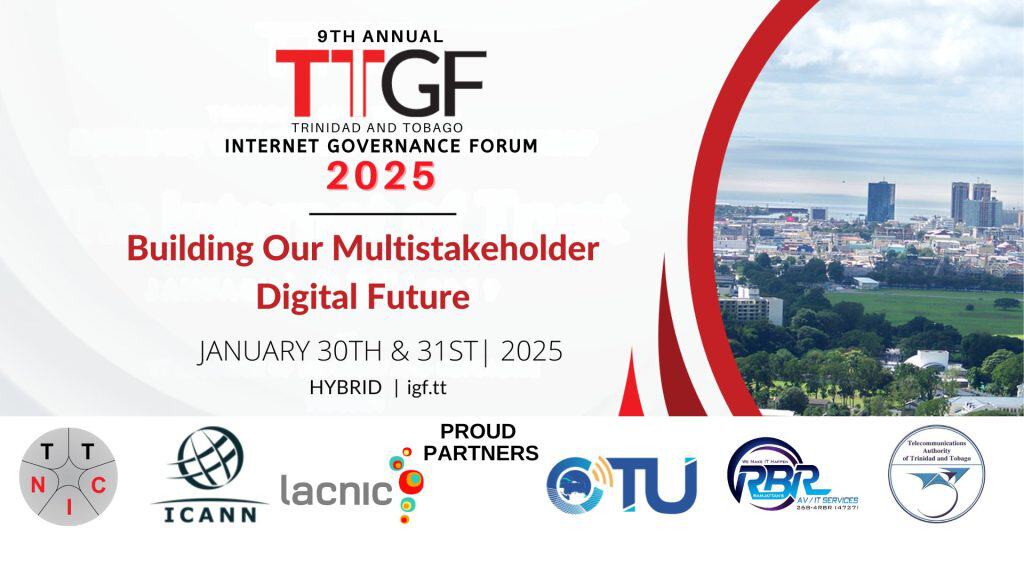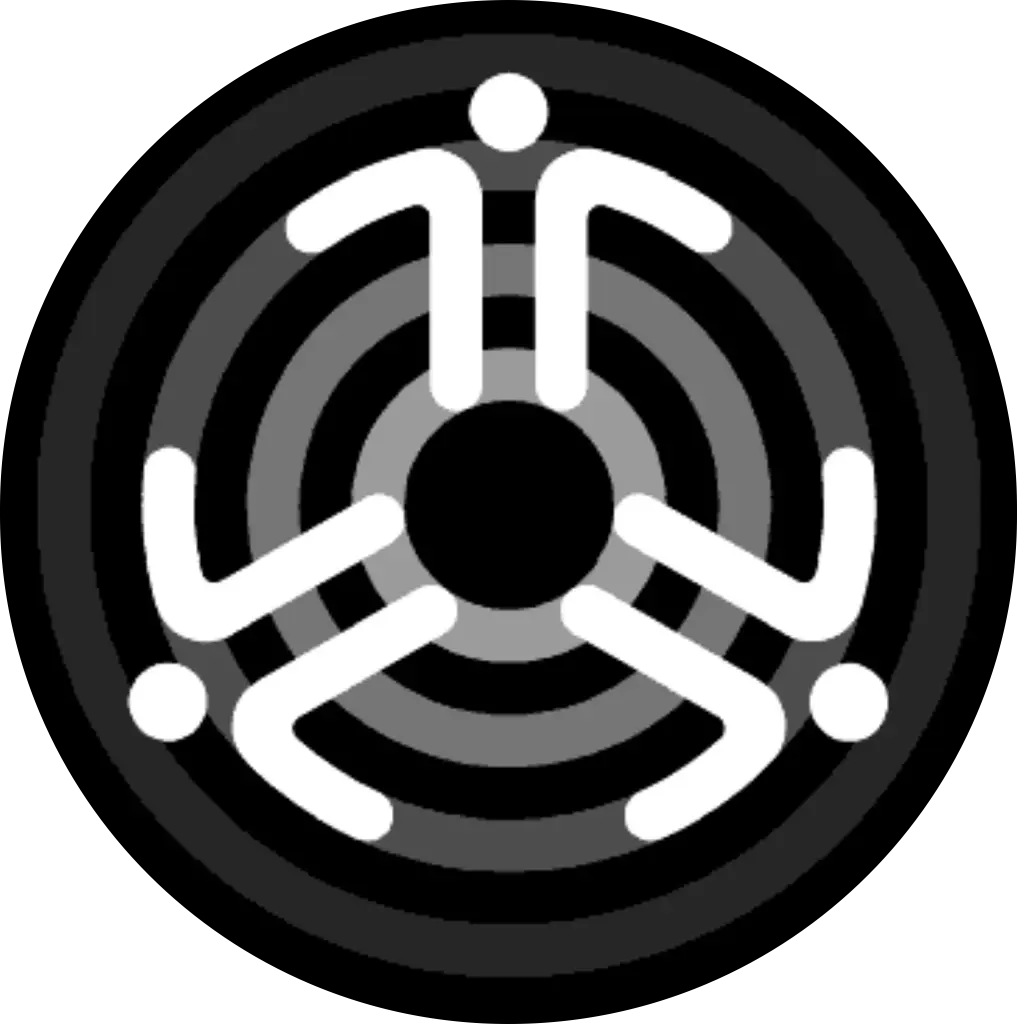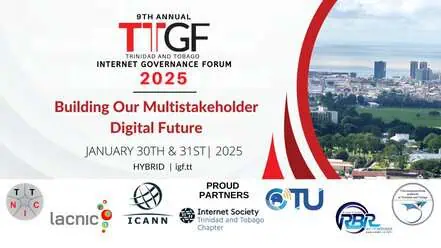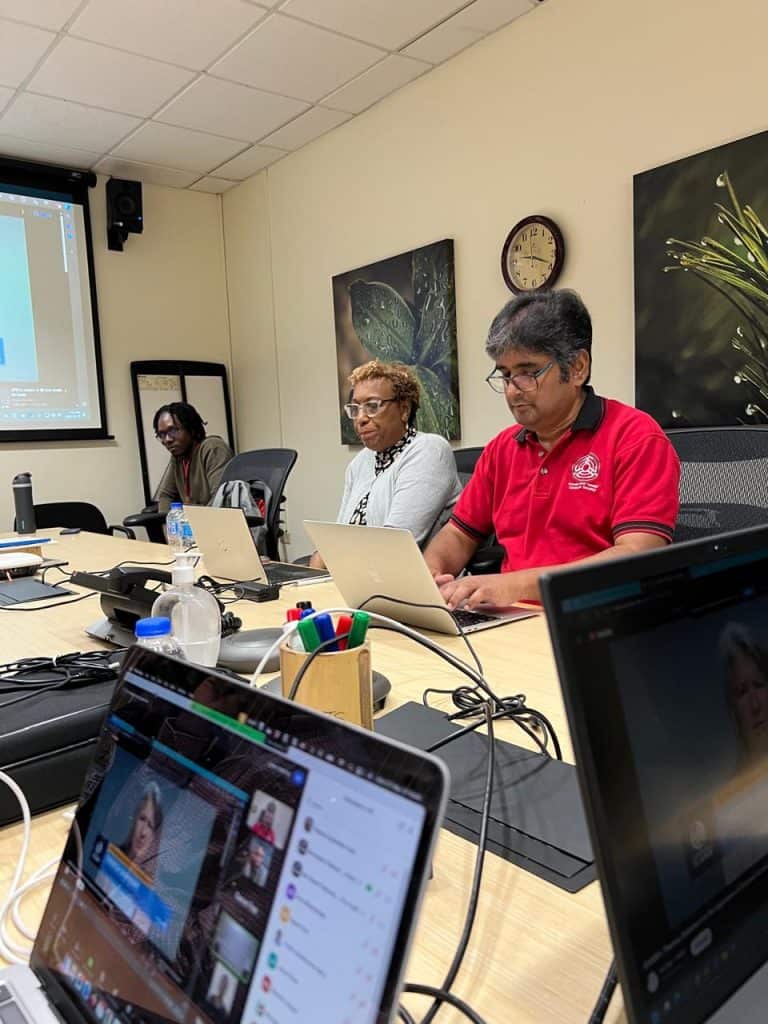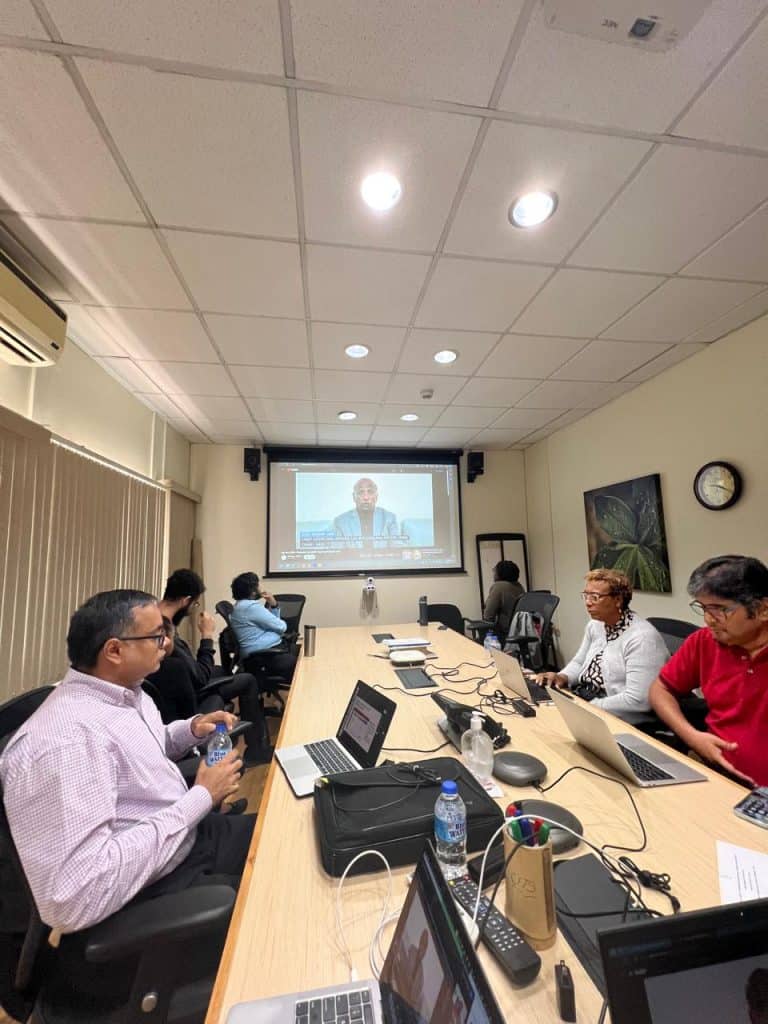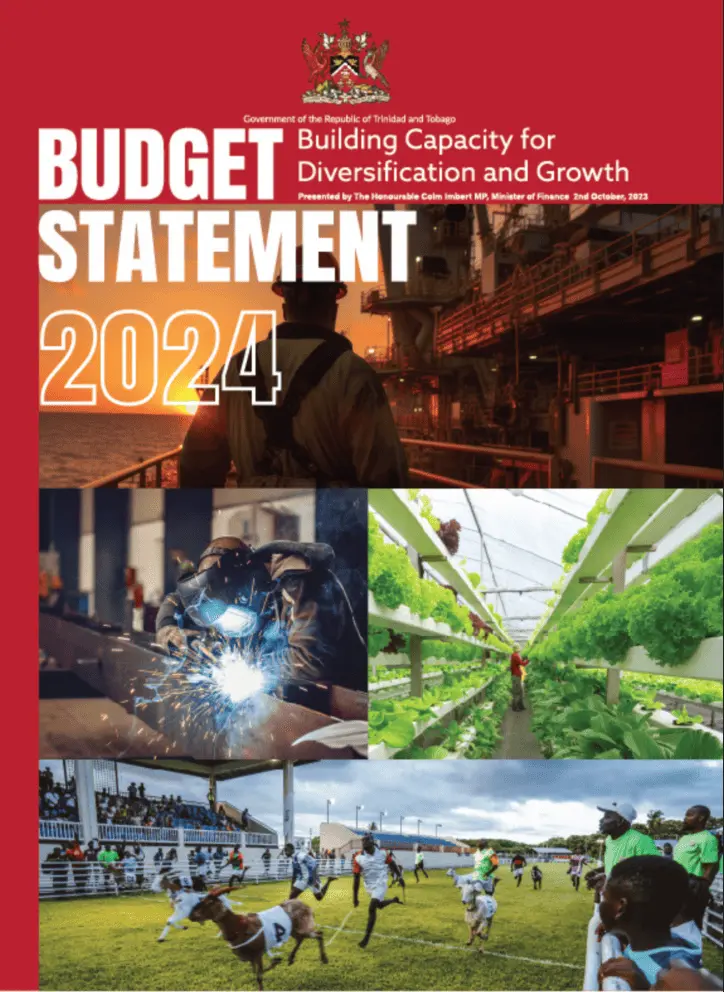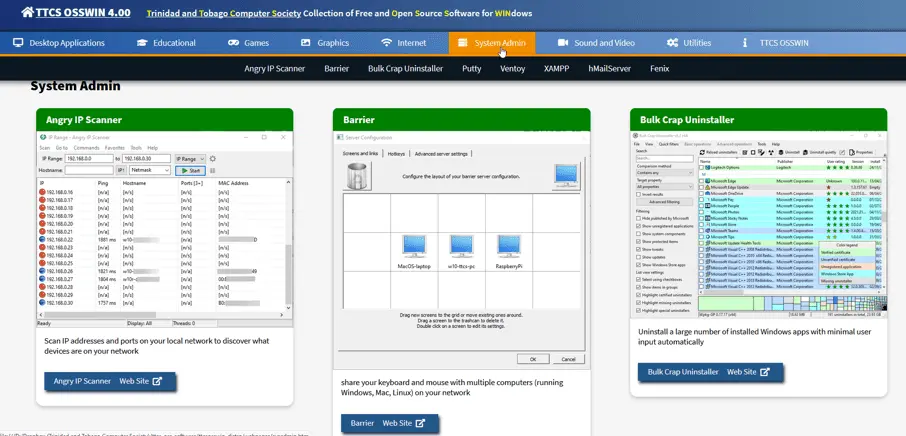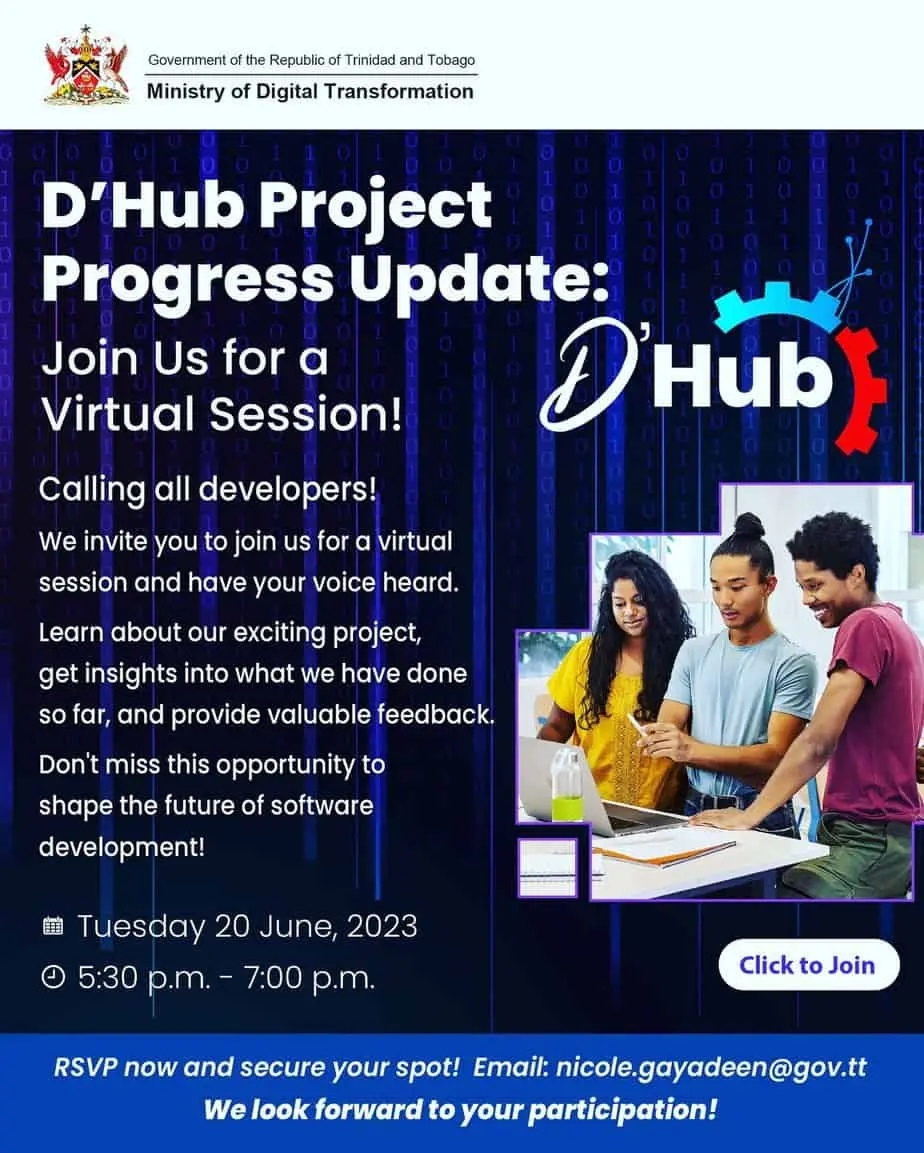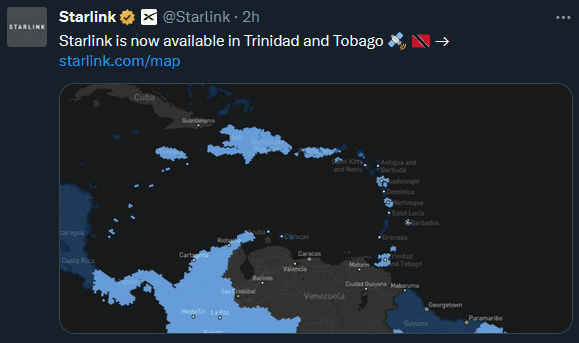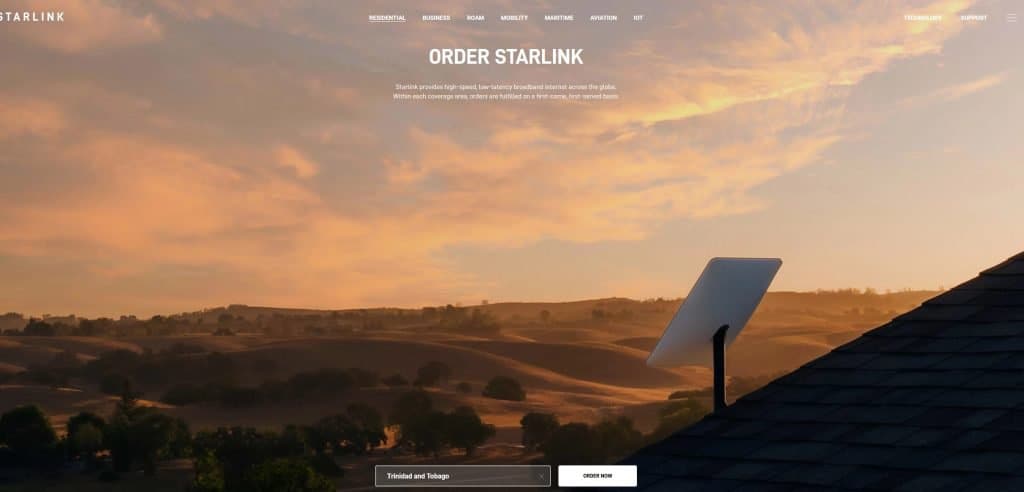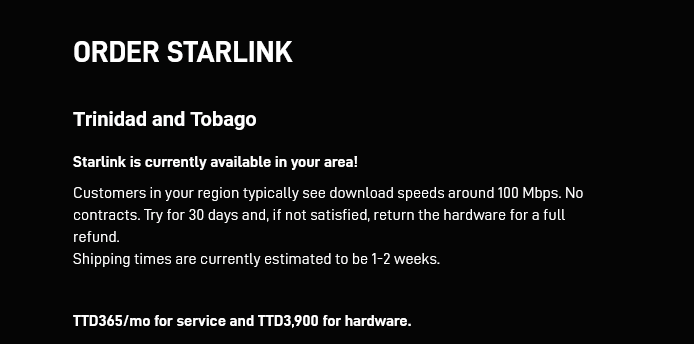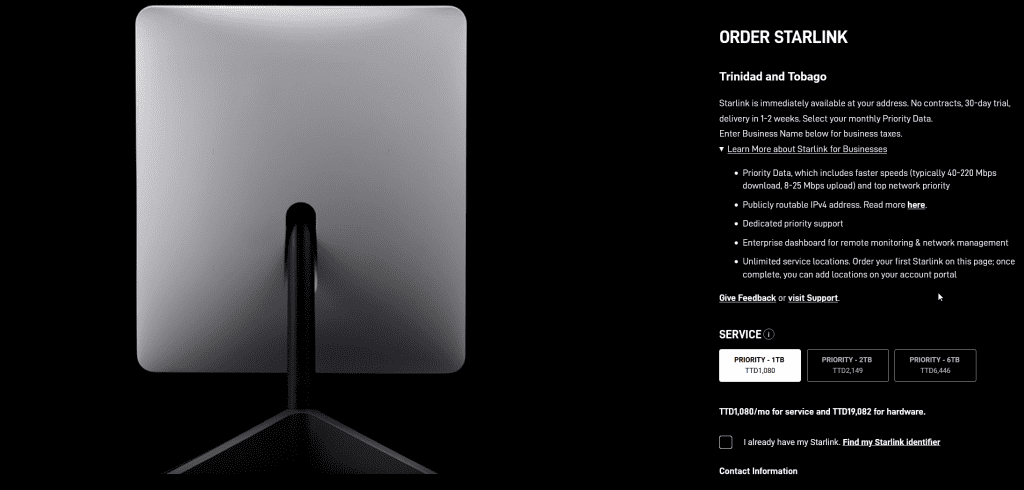The Minister of Finance, Honourable Colm Imbert presented the 2024 Budget Statement in the Trinidad and Tobago Parliament on October 2 2023.
The 2024 Budget Statement and related documents can be downloaded at
https://www.finance.gov.tt/2023/09/07/national-budget-2024-tenacity-and-stability-in-the-face-of-global-challenges/
This post will focus on the ICT related aspects of the 2024 Budget Statement.
From Pages 35-40, under “Trinidad and Tobago International Financial Centre”
“Madam Speaker, we are now well-poised to improve the functioning of our financial sector by increasing its digitalization. The Central Bank has been facilitating the use of electronic money by approving three (3) entities to operate as E-money issuers under the E-Money Issuer Order of 2020, which came into effect on August 4, 2020. Registered provisionally as E-money issuers: Pay Wise Limited, Telecommunication Services of Trinidad and Tobago and Pesh Money Limited have now been officially registered with effect from September 1, 2023, with more than 40 applicants in the pipeline for review by the Joint Regulatory Committee.
Madam Speaker, I consider this development a positive indicator for our economy. As observed in other emerging markets, mobile money has the greatest potential to increase our financial inclusion levels while providing economic opportunities to promote Trinidad and Tobago as a FinTech hub.
In consultation with the Central Bank and based on its experience with supervising e-money issuers as well as representation from industry participants, I have amended the E-Money Issuer Order 2020 to facilitate further the conduct of e-money activity without incurring concomitant risk by:
* removing limits on the size of transactions for individuals;
* increasing the wallet size and monthly transaction limits for individuals in the micro category;
* raising the monthly transaction limits for businesses; and
* removing limits on monthly transactions and wallet sizes for large enterprises and the Government.
Madam Speaker, the Trinidad and Tobago International Financial Centre is driving other digitalization initiatives in the financial services sector. It is also acting as a Resourceful Ally for all stakeholders as the country pursues its goal of reducing the use of cash in our society and becoming a Fintech-enabled financial services hub.
On July 5, 2023, the Trinidad and Tobago International Financial Centre launched the One Fintech Avenue platform. This initiative will now be the focal point for fintech activity in the region, offering a collaborative environment for all stakeholders to work, connect and collaborate on fintech-enabled projects through its solutions, policy, research and accelerator programmes.
Madam Speaker, One Fintech Avenue will also connect with other fintech nodes worldwide, encouraging domestic and international collaborations, working groups and initiatives. Ultimately, a clear fintech platform will be established locally. This platform will provide several programmes: solutions to help encourage investors, donors and partners interested in financing opportunities for emerging FinTech; capacity building to prepare applicants seeking to apply for licensing or seeking regulatory certainty for the use of technologies; and research to collect data to benefit the centre to advance digital finance and financial inclusion.
This national financial technology platform will preserve our position as one of the Caribbean’s largest and most diversified platforms. One Fintech Avenue’s interconnection with the rest of the Caribbean will spawn a robust digital financial services ecosystem, thereby facilitating the increasing use of digital payment technologies. Indeed, we have been expanding the digitization of government payments to reduce the use of cash.
I am also encouraged by the progress of the collaborative arrangement among Telecommunication Services of Trinidad and Tobago (TSTT), the Trinidad and Tobago International Financial Centre (TTIFC) and the Treasury Division of the Ministry of Finance in facilitating and effecting Electronic Funds Transfers relating to government payments. This collaboration has led to the development of an Electronic Cashbook or E-Cashbook, enabling an automated process for bringing revenue to account in real-time. This E-Cashbook is crucial in reporting receipts and payments via various electronic funds transfer modalities. I am pleased that the Ministry of Trade and Industry is using the E-Cashbook with the Single Electronic Window, and it will be used across all subsequent electronic funds transfer implementations within the Government.
Further, Madam Speaker, several government Ministries and Agencies are already using online payments through solutions developed in collaboration with the Trinidad and Tobago International Financial Centre and TSTT:
- In January 2023, the Housing Development Corporation, utilizing its e-pay service, offered a solution to its clients to issue rent, lease-to-own and mortgage payments. I am pleased that HDC clients can now complete transactions online in the safety and convenience of their homes using their debit and credit cards, and I wish to point out that HDC clients also have the option to issue payments through a payment service provider: Pay Wise at any of its 112 agent locations; and
- In March 2022, the Judiciary of Trinidad and Tobago developed electronic funds transfer instructions, which used the platforms of payment service providers to provide alternative payment methods to the under-banked and unbanked. Indeed, in 2021, 58,334 unpaid fines and fixed penalty case ticket records had resulted in uncollected funds of almost $100 million (now being resolved).
In July 2023, the Ministry of Trade and Industry went live with its collector of revenue model using the Single Electronic Window to support online payment transactions for the Ministry of Health, the Ministry of Works and Transport, the Ministry of National Security and the Ministry of Agriculture, Land and Fisheries. I am confident that this initiative will increase the use of online payment options, and it is envisaged that over 400,000 annual transactions will be processed.
Madam Speaker, in 2023, the Ministry of Works and Transport has been working with the International Financial Centre to launch a payment service allowing debit and credit card payments for fines and penalties. As of April 2021, unpaid fines stood at $35 million.
The Trinidad and Tobago International Financial Centre are assisting the Ministry of National Security to implement services at the Immigration Division to allow for the payment of student permits and e-visas with credit and debit cards. I am pleased with the early 2024 launch date for this initiative. At the same time, the Immigration Division has been facilitating the application for and renewal of passports through an easy online application system with an iGovTT e-appointment system with passports delivered through TTPost within a 3-week turnaround time and there is an option for expedited processing within 5 days at an additional cost.
We are also moving forward with digitalising government payments with 2 additional agencies: the Environmental Management Authority (EMA) and the National Entrepreneurship Development Company Limited (NEDCO). The EMA, with its online payments, will be supporting entities involved in farming, poultry, timber cultivation and oil and gas offshoring, and NEDCO, with online payment functionality, will be serving as a model for the broader application of grant disbursements for essential services such as food cards and educational grants.
We are developing an online payment ecosystem for collecting taxes as a key component in our drive to create a digital economy. We have engaged the Development Bank of Latin America (CAF) to provide technical consultancy services to undertake the project. We anticipate that the project with comprehensive recommendations will be completed and implemented by March 2024.
Madam Speaker, we are reasonably assured that with online payment facilities for cashless payments, our social agencies will be able to distribute services efficiently, safely and transparently. This ecosystem of electronic payments would anchor the progress we have made towards building a digital economy.
The August 2023 Financial Stability Report of the Central Bank reported that in 2022, electronic payments’ total volume and value increased as the economy continued to emerge from the effects of the COVID-19 Pandemic. This was evident in a rise in the volume and value of the Real Time Gross Settlement System, Automated Clearing House and cash transactions. The volume and value of cash withdrawals in 2022 increased by 30 percent for businesses and 26 percent for consumers over 2021.
Data from 2018 to 2022 show that the value of cash withdrawals in 2022, both over the counter and through automated teller machines, surpassed all other years. Illustratively, the value of cash paid over the counter increased from $24 billion in 2021 to $27.4 billion in 2022, and automated teller machines’ withdrawals increased from $27.7 billion in 2021 to $37.7 billion in 2022 ($10 billion more).
Madam Speaker, I dare say that cash remains an important means of making payments, but I look forward to our relevant institutions taking the necessary steps to expand their digital solutions and reduce the use of cash in our society. We need to move into a modernized financial landscape as soon as is practicable.
Our digital agenda is seeking to expand the financial inclusion landscape. The statistics are illustrative: 72 percent of businesses do not have a business bank account, 88 percent of businesses do not accept digital payments, and 55 percent of individuals do not now have the knowledge to use mobile or web online banking.
This is an unacceptable situation in the modern era, and we must fix this. To keep pace with the rest of the world, we must make as many citizens and businesses as possible knowledgeable and comfortable with digital banking and digital payment solutions.
Cash is still the dominant payment method for bills, purchases, school fees, taxes, and other fees and charges. To correct this, we are developing a National Financial Inclusion Roadmap to alleviate the challenges and barriers currently faced by the financially excluded (this data has come from a recent survey done by the Financial Centre)”
From Pages 61-64 under “Digital Economy”
“Madam Speaker, we are taking advantage of the rise of emerging technologies, typically represented by the internet, cloud computing, big data and 5G, and we are generating development opportunities by promoting the digital economy. E-business and E-commerce are gaining prominence in our economic and business infrastructure.
There is no gainsaying that broadband availability is central to the success of a digital economy. We are thus ensuring that TT Wi-Fi with free broadband access is available in highly-populated and frequented areas such as transport hubs, hospital waiting rooms, libraries and schools. We are also establishing information and communication technology access centres with computers with broadband access. We have begun a marketing campaign to articulate this programme’s various locations and advantages. Training 10,000 citizens, including senior citizens, with digital skills is a centrepiece of our technology-driven agenda.
We are ensuring that our citizens, particularly our young people, are adequately equipped to take advantage of the opportunities the digital economy provides. In June 2022, we introduced the Government Campus Plaza Developer’s Hub (D’Hub) project. D’Hub is a virtual platform which encourages, enables and hosts the collaborative development of open-source programmes and applications of specific interests to the Government.
Madam Speaker, we are expanding the local software industry through this virtual ecosystem. We envisage the platform providing and promoting opportunities for individual developers and small teams of 6 developers. They will also be allowed to partner with the Government to create software solutions to meet the service delivery needs of citizens and businesses. These developers can also use the site to develop software suited to their personal interests or business needs.
We continue to make laptops available to school children, except this time in a sane, sober and sensible way. Currently, we are making 2,400 fit-for-purpose laptops available to students and associated staff through the network of 94 secondary schools. This digital ecosystem will offer online platforms and services for teachers and students to respond effectively to the changing needs of an increasingly digital society, particularly for business-oriented opportunities.
The National Digital ID and Interoperability Ecosystem, with an associated unique digital ID, underpins this digital economy. We envisage that this infrastructure will improve the management of social services and access to and the provision of health services. Indeed, we are creating an alternative to traditional in-person visits to government offices. In the process, we are improving our citizens’ experience by delivering government services digitally.
Madam Speaker, we are building technological capacity among our citizens. TSTT has been investing in expanding its fibre network to ensure the widest reach and most reliable connectivity for all citizens. It has also upgraded its cell sites to ensure we remain connected during outages. The company has made the requisite investments in its network to enhance the mobile experience, with country coverage approaching 100 percent.
Further, the recent decision by the Telecommunications Authority of Trinidad and Tobago to issue a Type-2 concession to Starlink Internet Services Trinidad and Tobago Limited will address any broadband deficit in unserved and underserved areas. Using satellite technology, this broadband internet service company will provide high-speed broadband internet service to locations where access has been unreliable, expensive or completely unavailable.
The introduction of this internet service provider and other service companies using satellite technology will play a pivotal role in shaping our digital future and facilitate our quest to participate fully in the global economy. The recent issuance of a license to Neptune Communications, a telecommunications provider based in Barbados and with operations in Jamaica, will continue using satellite technology to provide high-speed internet access to only businesses and government users. This business model with reliable connectivity and redundancy will service forward-looking businesses and the Government is keen to reinforce the continuity of an increasingly digital business.
We are in no doubt that our capacity-building programmes in the use of digital technologies will benefit all our citizens. The recently concluded Memorandum of Understanding with the Government of India will advance the digital transformation process. Under this MOU, the two countries will cooperate on various initiatives, including capacity development, training programmes, best practices exchange and pilot solutions development. This collaboration will create a robust ecosystem of start-ups, developers and system integrators, driving next-generation innovation and enhancing inclusive finance.
Madam Speaker, at this time, I wish to thank the Government of India for advancing this bilateral cooperation in digital transformation and information technology. I am reasonably assured on the basis of experience that we will make full use of the benefits of the technology, and this will redound to the benefit of the country.
From Page 71 under “Ease of doing business – TTBizLink”
Madam Speaker, we are facilitating our non-energy exporters’ drive to secure and expand export markets with TTBiz Link. Improving the ease of doing business has been a key facilitator. We have been continuously upgrading the Single Electronic Window: TTBiz Link. The ongoing digitalization of processes is reducing the cost of businesses by allowing them to make online payments and directly download their approved documents.
In fiscal year 2024, we will launch 14 new e-services on the platform. We have commenced development of a new Port Community System to strengthen the interoperability of the major IT systems at our Ports, Customs and other border agencies. This system will facilitate the intelligent and secure exchange of information along the supply chain. It will allow for automation, management and optimization of port logistic processes at the ports of entry and exit and reduce costs for the clearance, movement and storage of goods.
Under Page 78 under “E-commerce Strategy”
Madam Speaker, we have had a resourceful ally in the private sector for a long time, and this partnership has expanded our non-energy sector. Underpinning this expansion has been an enabling environment, including fiscal incentives facilitating e-commerce for local businesses to serve domestic and international consumer markets.
We have been reassured that the new e-commerce strategy will focus mainly on supporting the use of e-commerce by local businesses to serve domestic, regional and international markets and, in the process, continue our diversification agenda. We are engaging UNCTAD to develop the National E-commerce Strategy under a Technical Assistance Agreement at a cost of US$240,000.
Under page 87 ” Education”
“We are now living in a knowledge-based economy and are pursuing an education system that is modern, relevant, technology-driven and accessible to all. With a digital transformation agenda, Wi-Fi access in schools is being expanded. The e-book platform is transforming teaching with more interactive, learner-centred approaches and increasing the number of candidates utilizing the e-testing system”
From Page 100, under “Our Safety Net”
Over the last 2 years, the Adult Literacy Tutors Association (ALTA) has partnered with the Ministry of Digital Transformation to provide an online version of ALTA’s literacy programme to persons in underserved communities. ALTA Online can expand immediately to new groups and is only limited by access to a device such as a smartphone, tablet or PC and the internet. Community centres and NALIS libraries are prospective venues to access ALTA Online. We are partnering with ALTA in 2024 to widen the reach of the Adult Literacy Programme to include CEPEP and URP workers, among others. This would add 4,000 persons per annum to the programme and will be voluntary.
For this purpose, I have allocated $7.69 million in 2024 for this expansion in adult literacy training.
From Page 137 under “5. Investment Tax Allowance : Cybersecurity”
“With the rapid advancement of technology and the growth of the digital economy, the increasing threat of cyber-attacks means that more secured and concerted effort are required to protect sensitive information from being penetrated. To aid in reducing this risk, I propose to introduce a Cybersecurity Investment Tax Allowance of up to $500,000 for companies which incur expenditure in respect of investments in cybersecurity software and network security monitoring equipment. To qualify for this allowance, the expenditure must be certified by iGovTT.“
“Madam Speaker, this measure is envisioned to incentivize companies to invest in cybersecurity for 2 years from January 1 2024 to December 31 2025. This measure will require amendments to the Corporation Tax Act, Chap. 75:02 and will result in an estimated tax loss of $8 million.“
